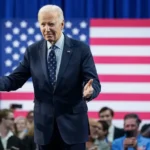
Published September 7, 2023
When the House returns from its recess next week, Speaker Kevin McCarthy will immediately face the challenge of managing his caucus to avert yet another government shutdown. The problem, as always, will be cajoling members of the Freedom Caucus to accept a bill that raises spending more than they would prefer.
Republican speakers have long solved this obstacle by cutting last-minute deals with their party’s holdouts. McCarthy (Calif.) should try to break the logjam, now and for the remainder of his tenure, with a new model: broker a comprehensive coalition contract with all his caucuses’ factions, as governments in other democracies often do.
Political parties in the United States have typically been much looser concoctions than their counterparts elsewhere in the world. Elected members frequently vote against their party’s leadership and gum up the works of government for something they value individually. This has rarely caused chaos in the past, because these members either have had specific deliverables that are politically plausible or because their defections have been counterbalanced by defections from the other party.
Click here to continue reading.
Henry Olsen is a Washington Post columnist and senior fellow at the Ethics and Public Policy Center. He was the Thomas W. Smith distinguished scholar in residence at Arizona State University for the winter/spring 2023 semester.
Henry Olsen, a senior fellow at the Ethics and Public Policy Center, studies and provides commentary on American politics. His work focuses on how America’s political order is being upended by populist challenges, from the left and the right. He also studies populism’s impact in other democracies in the developed world.












